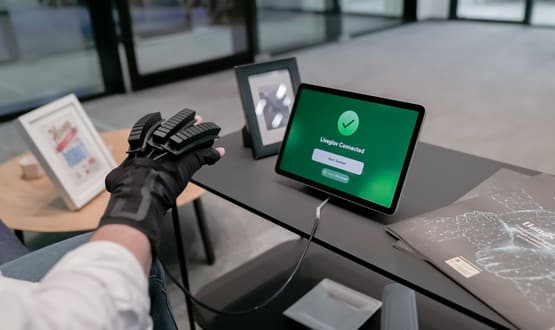Giraff robot plans Europe takeover
- 23 May 2014

A robot used for dementia patients being trialled by NHS Western Isles is set to go into commercial production across Europe next year.
The GiraffPlus project, funded by the European Union, uses a motorised Giraff robot with a built-in camera, speaker and microphone to connect elderly people to their family and friends and allow them to stay in touch from afar.
The system also includes wearable devices and sensors around the home to monitor the person’s health.
The sensors are designed to detect activities like cooking, sleeping and watching television, while monitoring the person’s health through their blood pressure and sugar levels among other measures.
EU Project coordinator Amy Loutfi said the GiraffPlus system is currently in six homes across Europe, and will be in 15 by the end of 2014.
Loutfi said the evaluation of the system is still in progress, but early feedback has emphasised the need to avoid a “one size fits all” approach and ensure the technology can be tailored to people’s needs.
The system is currently set to go into commercial production by the end of 2015, based on an upfront fee and monthly subscriptions to make it competitive with increasingly expensive full-time care.
European Commission vice-president Neelie Kroes said: "None of us is getting any younger. But we all want to know that we will not lose our dignity, respect and independence as we age.
“The EU is investing in new technology that can support the silver generation – adding not just years to our life, but also life to our years."
NHS Western Isles is currently trialling the Giraff robot, without the sensors, as part of the EU’s RemoDem project to improve access to healthcare for those living in remote areas.
Trust IT director Jon Harris told EHI last July (http://www.ehi.co.uk/news/EHI/8744/robot-to-help-dementia-patients) the Giraff was more than “Skype on a stick” and could be a valuable tool to assist with remote working.
“It’s a really interesting gadget and it has huge promise in terms of what it can do. You can also check on the state of the house and what it looks like, to see how the person is coping.”
EHI approached the trust for an update on the trial but was told the trust will not comment on any aspects of the project until it has been completed and evaluated.




